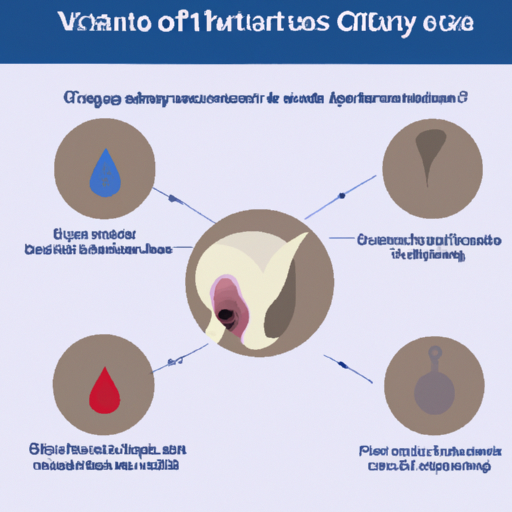As a loving caregiver to your furry friend, it’s essential to stay informed about their health and common medical issues they may face. One such issue that often causes concern is the formation of cysts. But what causes these cysts in dogs? This article will delve into the causes, symptoms, and treatments for cysts in dogs, providing you with the knowledge you need to keep your pet healthy and happy.
1. Understanding Cysts
Cysts are essentially small sacs that can form anywhere on your dog’s body. These sacs are often filled with fluid, air, or other substances. It’s important to note that not all cysts are harmful; some may be benign and cause no issues at all. However, others can be a sign of more serious health conditions.
2. Causes of Cysts in Dogs
Several factors can lead to the formation of cysts in dogs:
-
Hormonal Imbalances: Changes in your dog’s hormonal levels, often due to aging or other health conditions, can lead to the formation of cysts.
-
Injury or Trauma: Any injury or trauma to your dog’s skin can cause a cyst to form as part of the healing process.
-
Infections: Bacterial or fungal infections can lead to the development of cysts.
-
Genetic Factors: Certain breeds of dogs are more prone to developing cysts than others due to genetic predispositions.
3. Recognizing Symptoms
Now that we’ve covered the causes, it’s important to identify the symptoms of cysts in your dog:
- Lumps or bumps on the skin
- Hair loss around the cyst area
- Redness or swelling
- Discomfort or pain
4. Treatment Options
If you discover a cyst on your dog, it’s important to consult with a vet. They may suggest several treatment options, including:
-
Surgical Removal: If the cyst is causing discomfort or has the potential to grow larger, surgical removal may be the best option.
-
Drainage: For cysts filled with fluid, your vet may choose to simply drain them.
-
Medication: In some cases, medication to reduce inflammation or kill any infection can be used.
-
Observation: If the cyst is not causing discomfort or posing a health risk, your vet may suggest simply observing it over time.
5. Preventing Cysts
While not all cysts can be prevented, maintaining your dog’s overall health can help reduce the risk. This includes:
- Regular grooming to prevent skin infections
- Providing a balanced diet to maintain hormonal balance
- Regular vet check-ups to catch any potential issues early
Frequently Asked Questions
Q: Are all cysts dangerous?
A: No, not all cysts are dangerous. Some are benign and cause no issues.
Q: What breeds are more susceptible to cysts?
A: Breeds with genetic predispositions, like Boxers and Cocker Spaniels, are more prone to cysts.
Q: Can a cyst go away on its own?
A: Yes, some cysts can resolve on their own, but it’s important to have your vet monitor them.
By understanding what causes cysts in dogs, recognizing the symptoms, and knowing the treatment options, you’re well-equipped to provide the best care for your furry friend. Remember, regular vet check-ups are key to early detection and treatment of any health issues.
Stay informed, stay vigilant, and keep loving your pet – because they certainly love you, cysts or no cysts.



